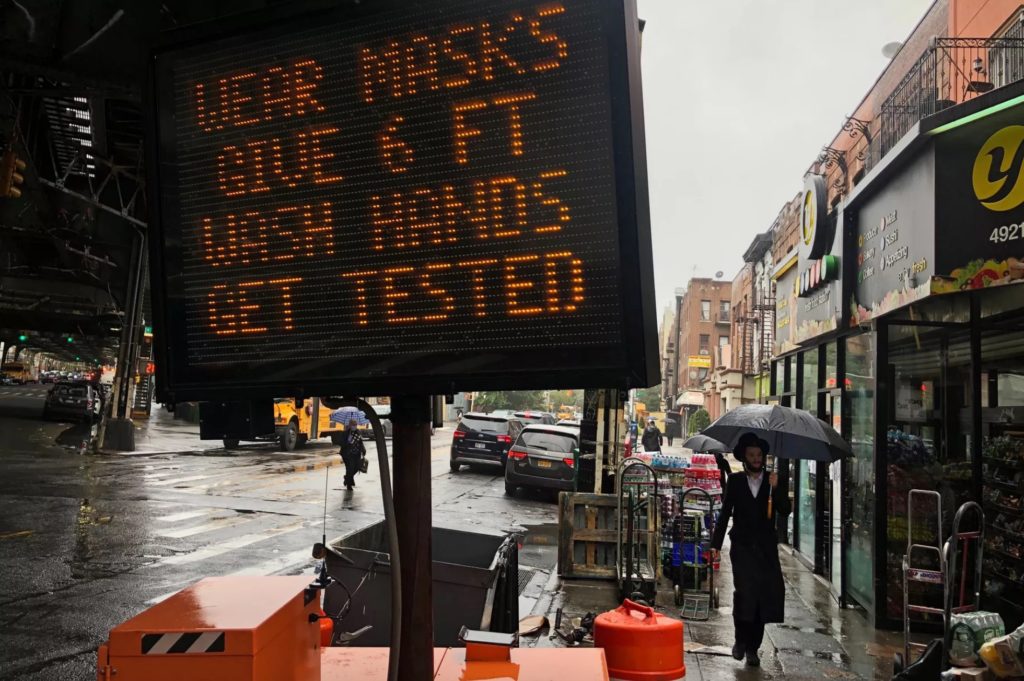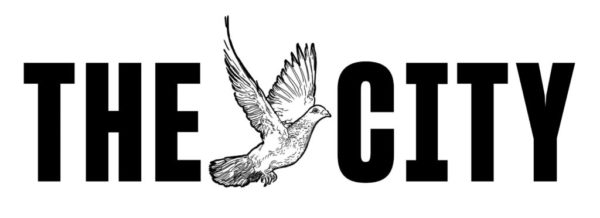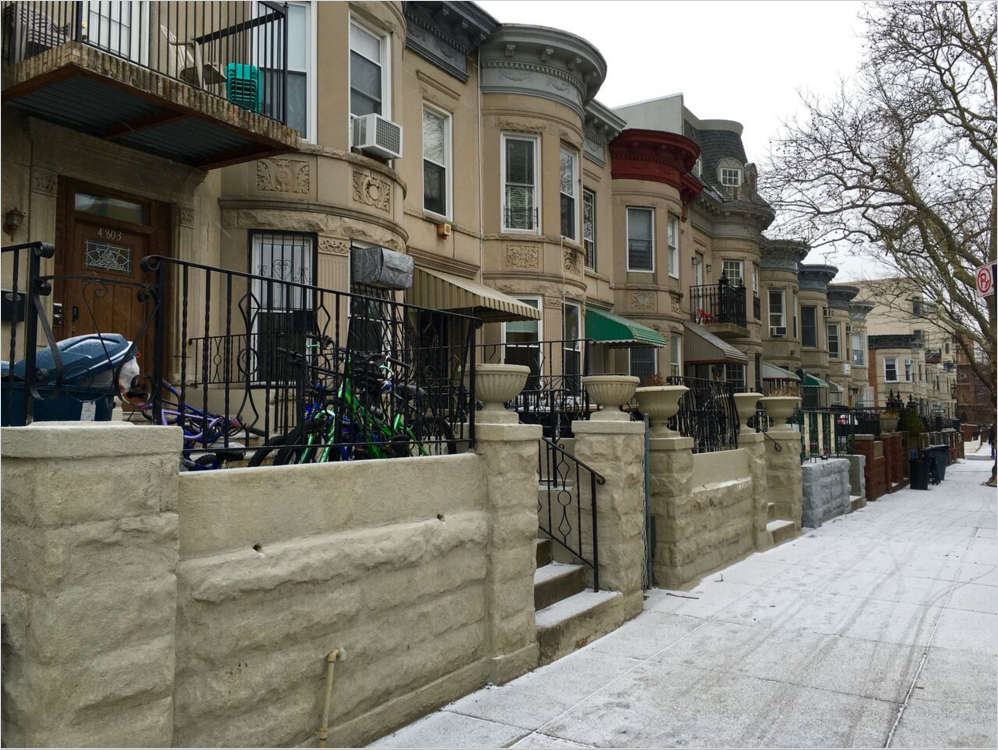Businesses in virus hot spots hit for lack of COVID safety measures

The city placed a sign in Borough Park, Brooklyn imploring residents to follow safety guidelines during the coronavirus outbreak, Oct. 13, 2020. Photo: Ben Fractenberg/THE CITY
 This story was originally published on Oct. 14 by THE CITY. Sign up here to get the latest stories from THE CITY delivered to you each morning.
This story was originally published on Oct. 14 by THE CITY. Sign up here to get the latest stories from THE CITY delivered to you each morning.
No cleaning logs, no records of employee temperature checks and no safety plans.
Those are some of the top violations issued by city inspectors to businesses primarily in designated COVID-19 hot spot areas where strict limits have been ordered by government officials to stem a rise in coronavirus infections.
